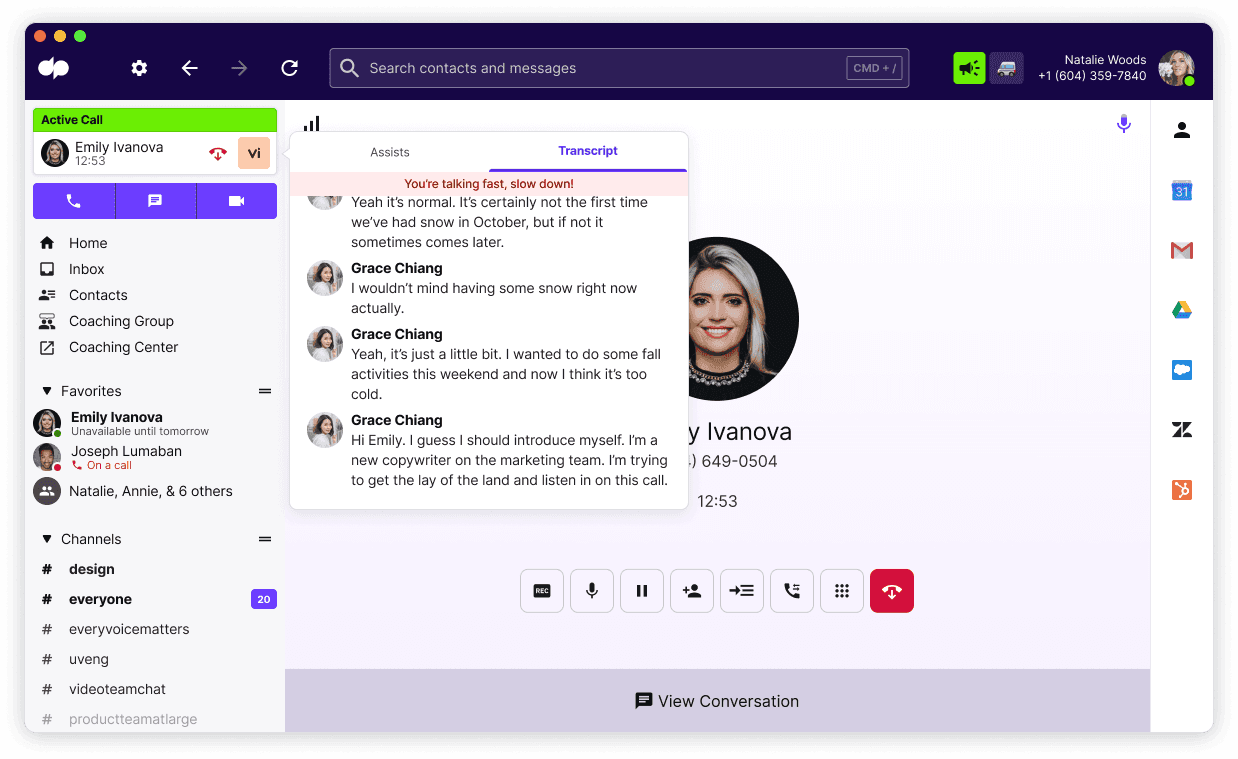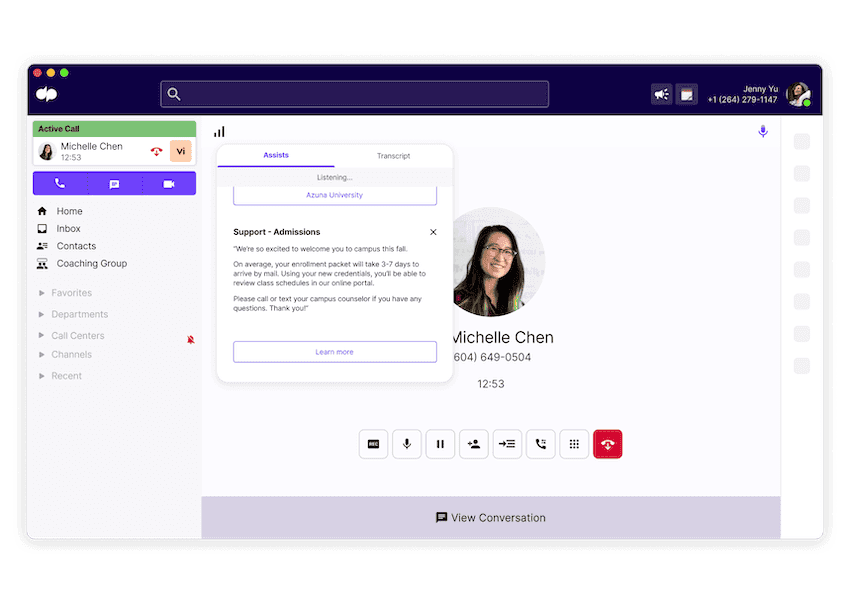Need to build rapport with customers? Dialpad can help

Associate Product Manager, AI

Manager, Data Annotation & Testing

Tags
Share
What is “rapport”, anyway? And why is it important?
Rapport is the foundation which helps us build meaningful and harmonious connections with each other based on mutual understanding and empathy.
It helps us feel more in sync with one another and makes for smoother communication, both in professional and personal contexts.
For example, building rapport as a salesperson is vital because it can mean your prospects are more likely to open up to you about their pain points, respond openly and honestly to your questions, and generally trust you and the information you are giving them.
When should I be building rapport in a call?
Even though there will likely be many chances to build rapport throughout a conversation, there are a few key moments that you should be ready for. Understanding the typical stages within a conversation will help you figure out the best times to focus on rapport building. It also allows you to take cues from the person you are speaking with, helping the conversation flow and ensuring the other person feels comfortable. The image below shows a diagram of the Life of a Call:

Let's take a look at each of these sections a little more closely.
Opening section
The greetings section is pretty straightforward. I'm sure you already know this is simply the very start of a call where people say, "Hi", "Howdy," or "Hello." The conversation will then flow into the section for personal state inquiries. This is a great time to think about rapport.
Even the answer to a simple, "How are you?" can give you information about the person that can be used to build a deeper connection as well as giving you an opportunity to show empathy. Try asking them a question that will give you more information about them so the next time you speak with them, you can use what you learned to show you were listening during the previous call.
Any of the call participants stating the call’s purpose indicates the end of the call opening and the start of the body of the conversation. If the person you are speaking to moves into stating the call’s purpose, or is asking you about it, you know it is time to move on to the next section of the conversation, the main content. Dialpad can actually detect the point at which this occurs in a call with our Call Purpose moment. If you'd like to learn more about this moment, be sure to check out our spotlight blog post series!
👉 Dialpad tip:
When you're preparing to meet with someone, review the Call Purpose from your previous conversation as a quick refresher.
Content
Most of the main body of the conversation will be taken up working through the purpose of the call. Call purposes come in all shapes and sizes from sending out a report, to qualifying a prospect, or resolving a technical issue. However, you can still look for additional opportunities to sneak in some rapport building. The most obvious time will be when there is a natural lull in conversation when you may be waiting for a response from a colleague or for something to load.
Closing
The pre-closing is another section you should be watching out for, especially if the person you are speaking with ushers you into that section or you notice your countdown timer is getting dangerously low. Now this is a part of a conversation you likely haven't thought about or noticed before, but now you are aware of it, you will see it in every call! Your conversation might look something like this:

The pre-closing section is the silence (sometimes awkward!) followed by, "Okay, so…"
When this occurs in the call, you know you only have a couple minutes at most to end things. So take this time to mention anything else vitally important such as getting a commitment for next steps.
Lastly, you can use the closing section to show empathy and/or show that you have been listening carefully by summarizing what was discussed, any next steps.
Okay, but how do I build rapport?
From what we’ve observed so far, here are a few ideas for how you can build rapport in customer conversations:
Small talk is vital and helps build social connection. It is a way to find common ground with others and start building a shared bond—the more we have in common the more likely we are to like one another.
Focus the conversation on the other person. Avoid talking about yourself or asking overly direct questions early in the conversation. Try opening the conversation with an inquiry into how the other person is doing. Something like asking how their day is going, or about upcoming time off is a great and simple opening to almost any conversation. To make sure you’re not monopolizing the conversation, Dialpad has a handy speech coaching feature to help you keep track of how much—and how quickly—you’re talking:

Don’t forget to use their name. Using the person’s name in the conversation is polite, shows that you’re paying attention, and care about who they are (just don’t over do it). If you happen to forget their name, Dialpad keeps track of it for you!
Engage the other party by asking open questions. These help the person open up and provide more information on the topic you’re talking about. If you ever forget the answer to a question that was asked you can always refer back to it with our Interesting Question moment.
Empathy goes a long way. A simple “I understand” or “I would feel that way too” is a great way to show the other person that you are listening and care about what they are saying. This is especially important in support calls. Try using our Custom Moment template to track how often you show empathy, or create a Real Time Assist (RTA) card to remind yourself in real time.
RTA cards can be customized with whatever notes you want, and you can set them to pop up automatically on your (or your team's) screen whenever certain keywords or phrases are spoken on a call:

Find something they are passionate about. Even better if their passion is also something you’re interested in—finding common ground is great! But remember...
Be authentic / Don’t force it. People can tell when you’re faking it and it results in a loss of trust. If you disagree with something you can politely say so or change the subject.
And remember that you don’t need to do all of these things in every single conversation—use the techniques most appropriate based on the type of conversation you’re having.
Want to build rapport with your customers, even while working from anywhere?
Get a personalized walkthrough of how Dialpad can help agents and supervisors communicate with customers and prospects, no matter where they are.
